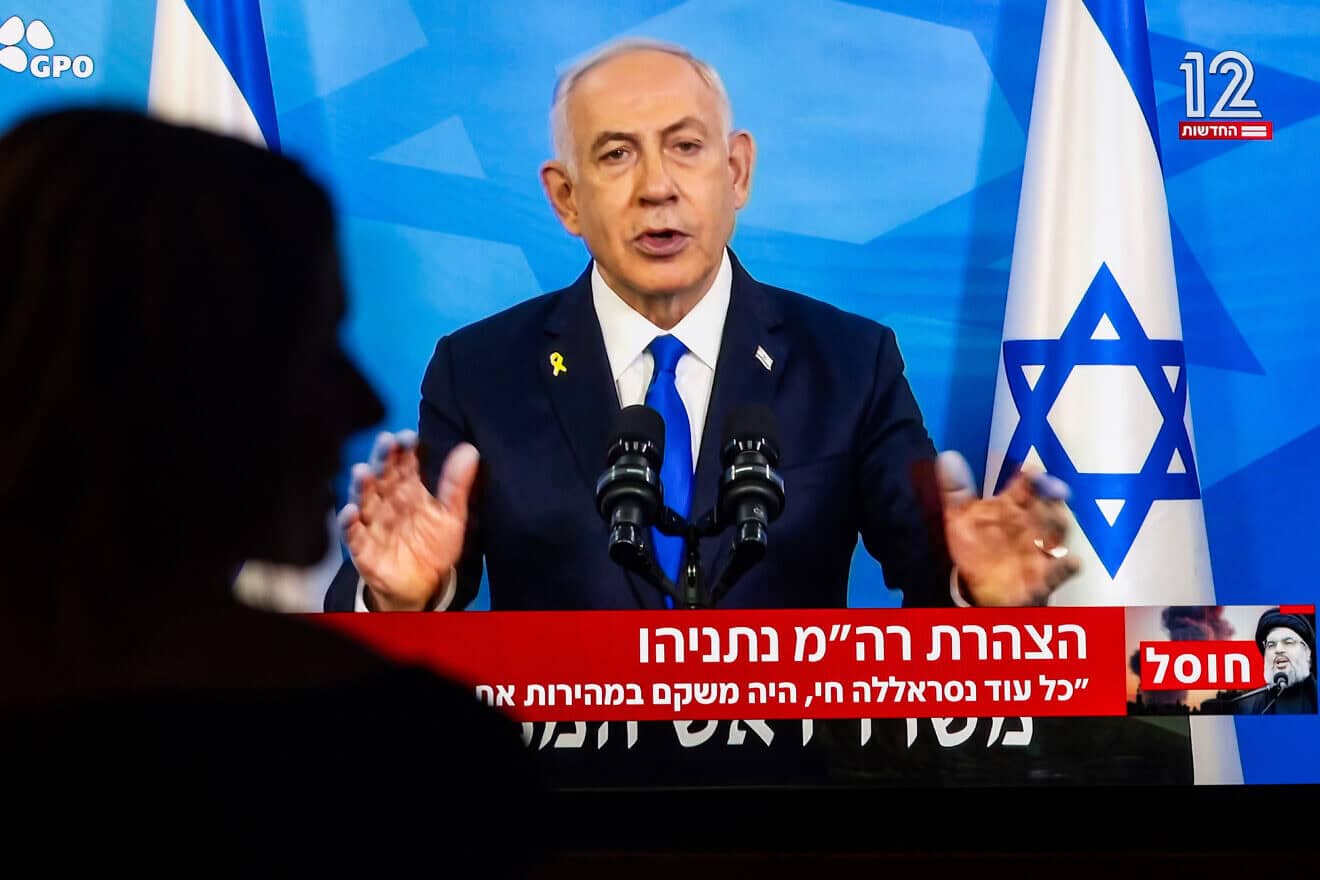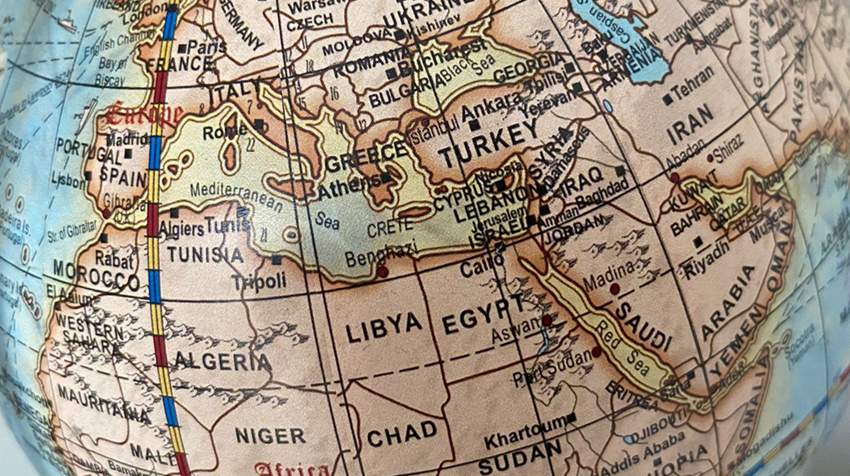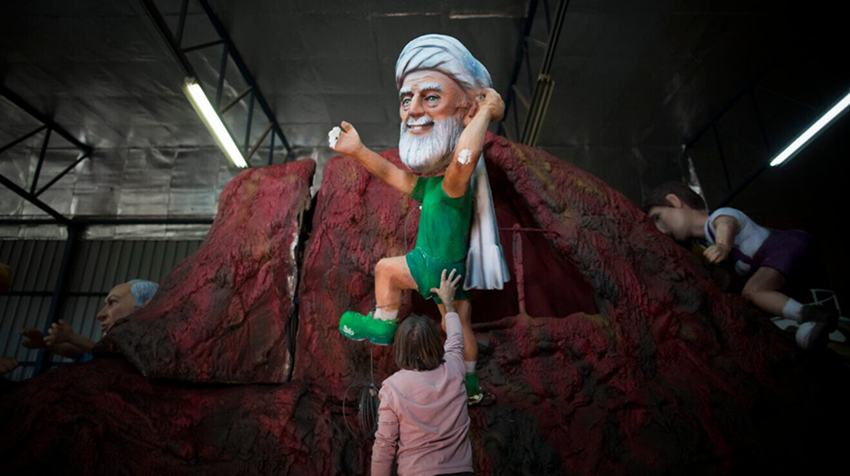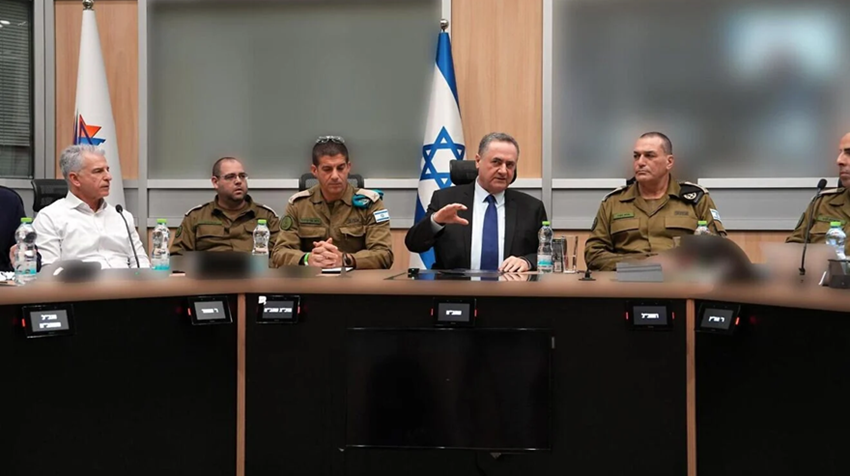Credit: Yonatan Sindel/Flash90.
By Akiva Van Koningsveld
The Israel Defense Forces will respond “forcefully” to all violations of the impending ceasefire deal with Iranian-backed Hezbollah in Lebanon, Israeli Prime Minister Benjamin Netanyahu vowed on Tuesday evening.
The Israeli premier spoke in Hebrew as members of the country’s Security Cabinet, which is responsible for defense-related decisions and composed of senior ministers, gathered at the IDF’s Kirya military headquarters in central Tel Aviv to approve the terms of the agreement to end the war.
Addressing the nation of Israel and his “friends” in northern border towns, Netanyahu said he was “totally committed to your security, to the rehabilitation of your communities, to your future,” per an English translation released by the prime minister’s office.
“First, the head of the octopus—Iran. We destroyed major parts of Iran’s air defense system and missile-manufacturing capabilities, and we demolished a significant component of their nuclear program,” he said in the primetime address.
“I am determined to do anything needed to prevent Iran from obtaining a nuclear weapon. That threat has always been my top priority and is even more so today, when you hear Iran’s leaders state over and over again their intention to obtain nuclear weapons,” he added. “For me, removing that threat is the most important mission to ensure the existence and future of the State of Israel.”
The Israeli leader added that he observes “all fronts simultaneously” throughout managing the campaign.
“That is what I did at the beginning of the war when I decided to focus on Gaza and not open a broader front in Lebanon,” he said. “That is what I did several months ago when the conditions ripened to go north, and then we decided to focus on Hezbollah.”
More than a year has gone by since Hezbollah joined the war in support of Hamas on Oct. 8, 2023.
“It is not the same Hezbollah. We have pushed them decades back. We eliminated Nasrallah, the axis of the axis,” Netanyahu said. “We have taken out the organization’s top leadership, we have destroyed most of their rockets and missiles, we have killed thousands of terrorists and we demolished their underground terror infrastructure abutting our border, infrastructure they had been building for years.”
“Only three months ago, this all would have sounded like science fiction. But it isn’t,” he added. “We did these things.”
Netanyahu said he decided to bring the ceasefire deal to a vote in the Cabinet for three reasons: to focus on the Iranian threat, to refresh and resupply IDF forces, and to isolate Hamas in Gaza.
“I say it openly. It is no secret that there have been big delays in weapons and munitions deliveries. These delays will be resolved soon,” he said. “We will receive supplies of advanced weaponry that will keep our soldiers safe and give us more strike force to complete our mission.”
He noted that the length of the ceasefire, which will reportedly start with a 60-day transition period, “depends on what happens in Lebanon.”
“A good deal is a deal that is enforced, and we will enforce it,” he said. “With God’s help, we will establish security, we will rehabilitate the north and continue, united, until victory.”
‘Limited, localized and targeted raids’
Under the reported terms of an earlier draft agreement, all IDF troops are expected to withdraw from Southern Lebanon over 60 days as the country’s official Lebanese Armed Forces are deployed to the area.
Iranian-backed Hezbollah has promised to relocate its “heavy weapons” north of the Litani River, located some 18 miles north of the border with Israel. The deal reportedly includes an oversight committee, which the U.S. will lead, to monitor implementation and address violations.
Israel has pledged to limit its actions against Hezbollah violations to situations where the Lebanese army fails to neutralize the threat, and it will only do so after consulting with Washington.
An unnamed Israeli official told Axios that the truce is expected to take effect on Wednesday morning after U.S. President Joe Biden announces it later on Tuesday.
Hezbollah has attacked the Jewish state nearly daily for more than a year, firing thousands of rockets, missiles and drones across the border.
More than 60,000 residents of Israel’s north remain internally displaced due to the ongoing cross-border attacks from Lebanon. The attacks have killed at least 76 people in Israel, including 31 IDF soldiers and six foreign nationals. More than 700 have been wounded.
Jerusalem has escalated attacks on Hezbollah since adding the return of displaced citizens to northern Israel to its official war goals on Sept. 17.
On Sept. 30, the IDF announced that ground forces had moved to “limited, localized and targeted raids” inside Lebanon. More than 40 IDF troops were killed by Hezbollah terrorists during the two-month-long ground maneuver, according to official military data.
U.N. Security Council Resolution 1701, which brought an end to the 2006 Lebanon War but was never enforced, mandated the complete removal of Hezbollah south of the Litani River and banned the presence of armed groups in Lebanon except for the Lebanese army and U.N. peacekeepers.
Source: JNS


































